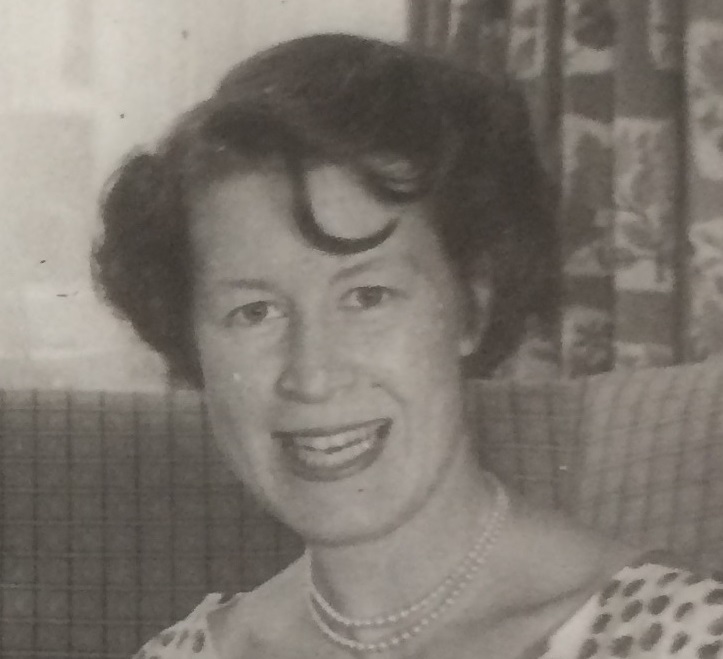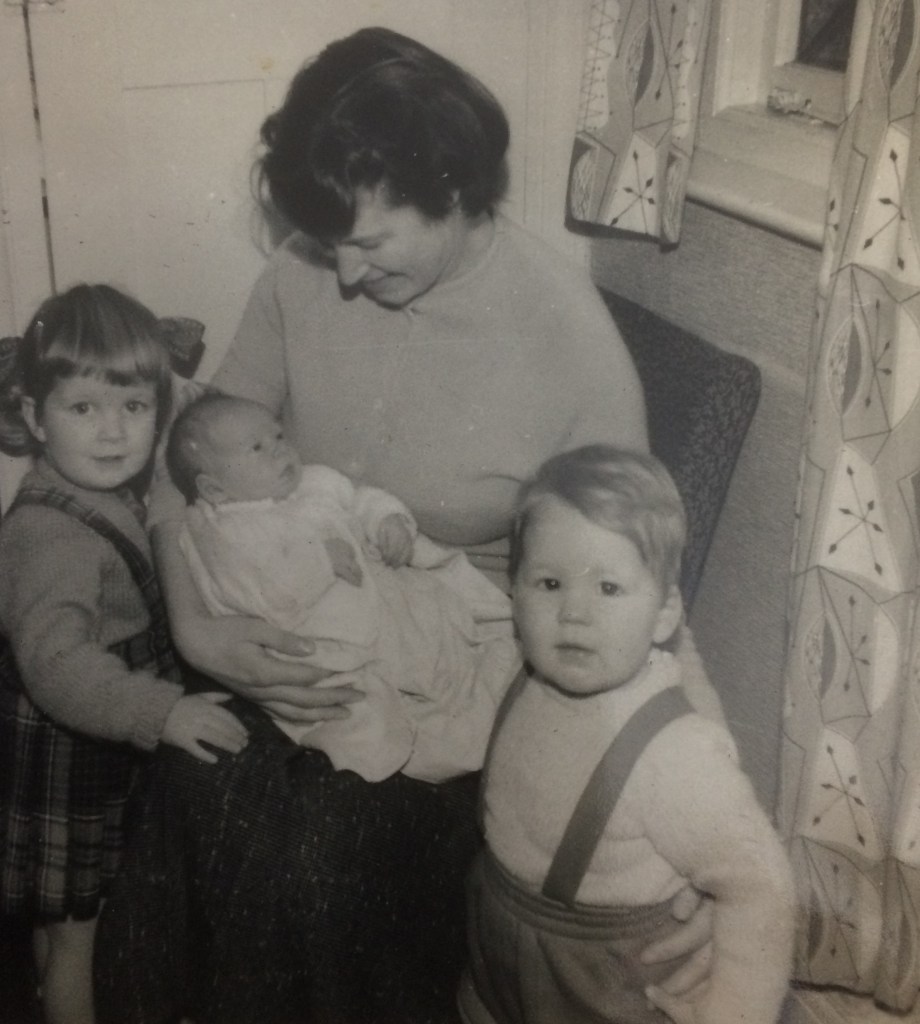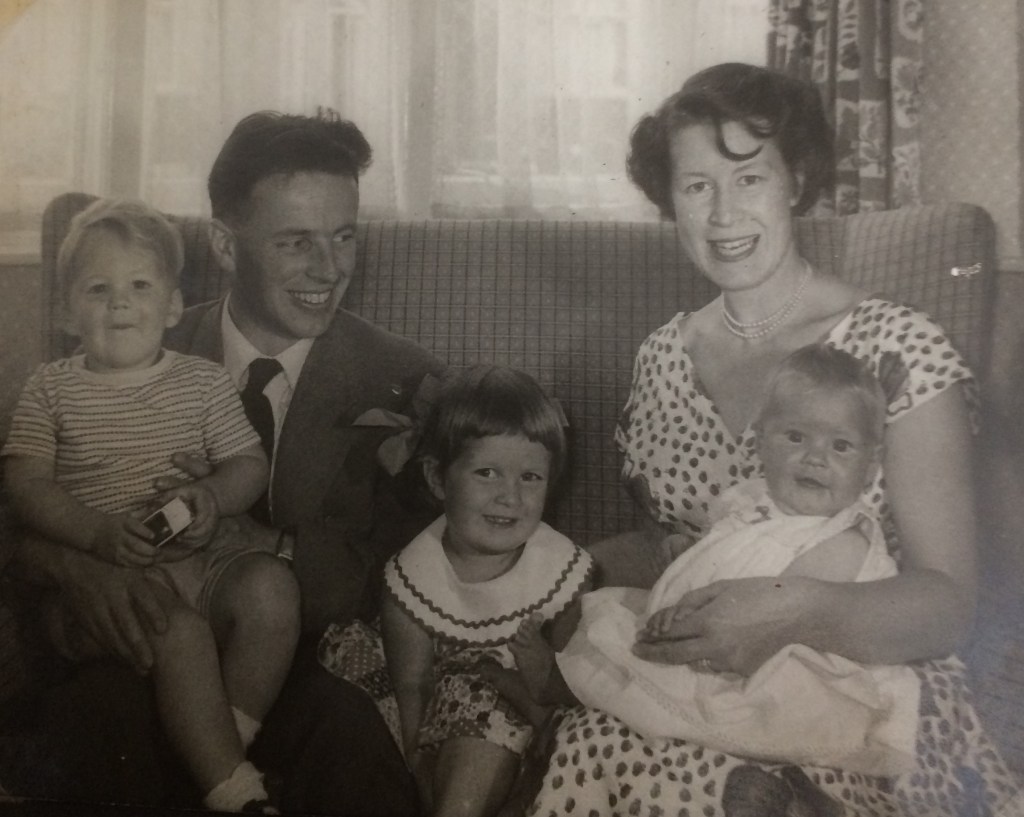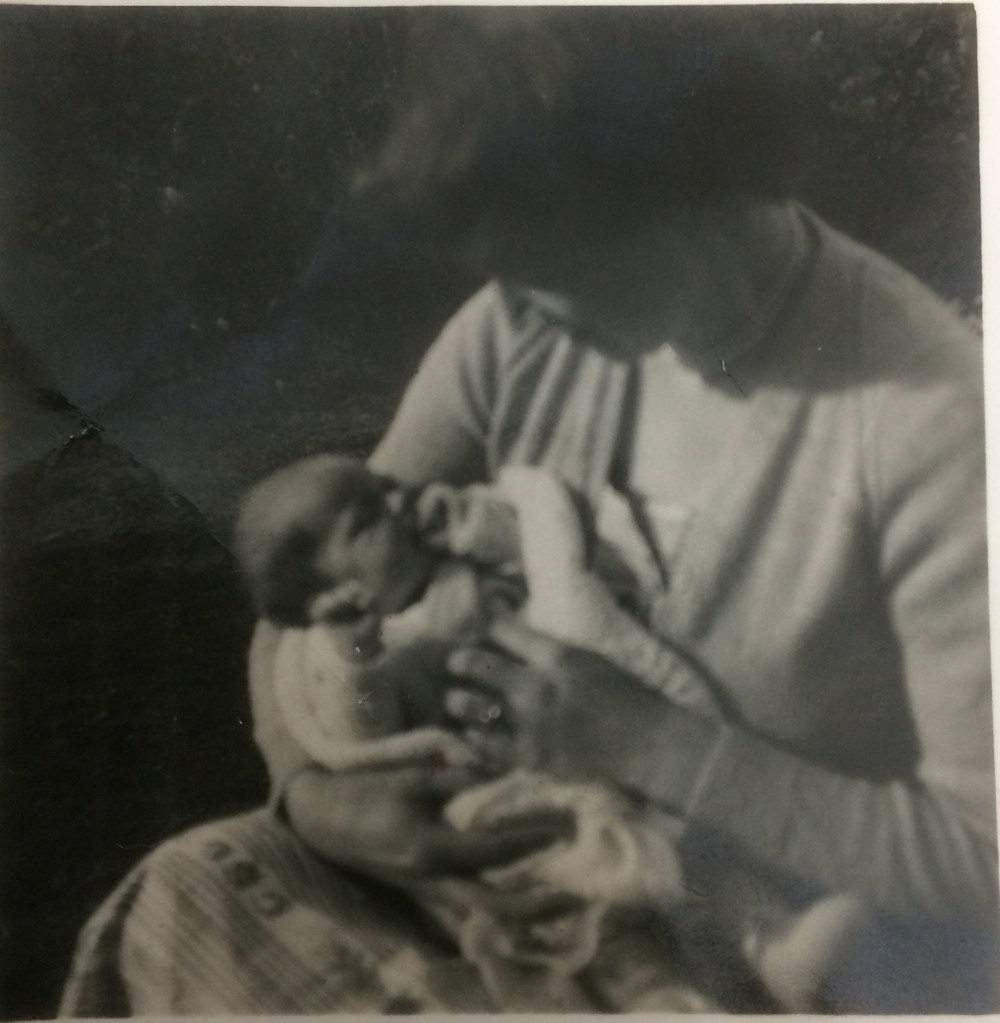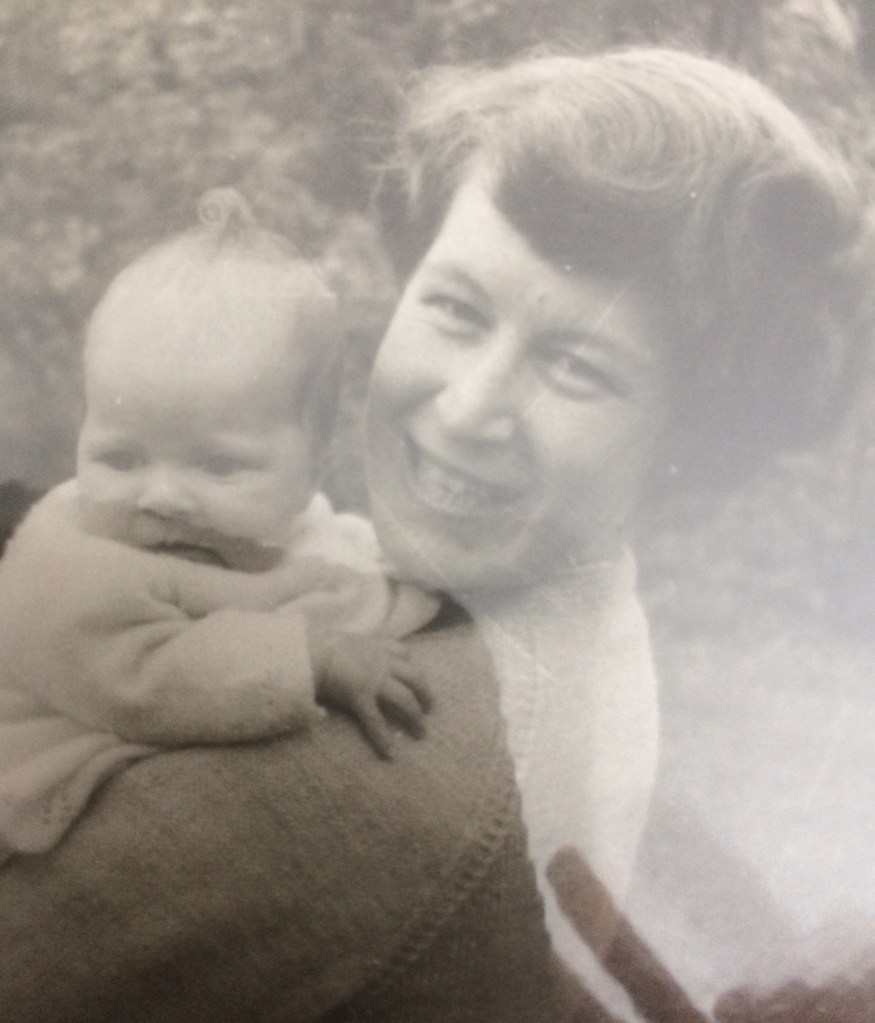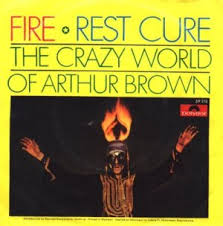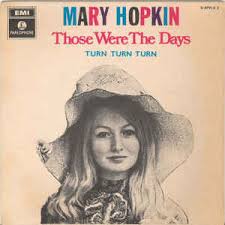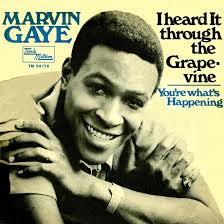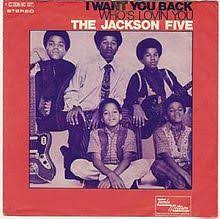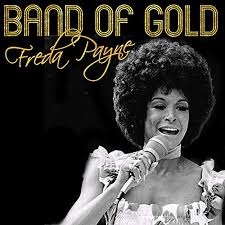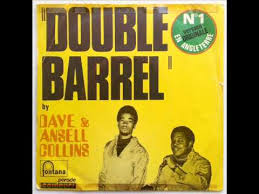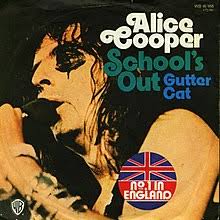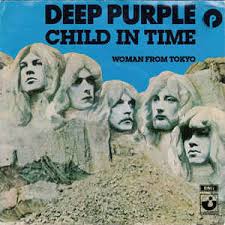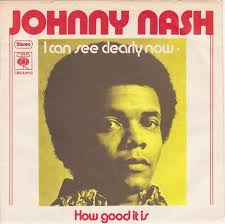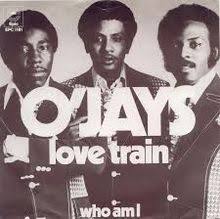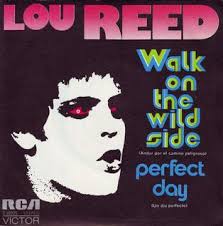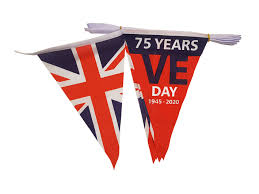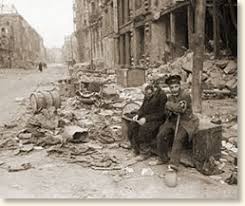Archive for May, 2020
Some Fantastic Place #2
Posted by cathannabel in Personal on May 29, 2020
Eight years ago, I wrote about my Mum, on the anniversary of her death. It was the most personal thing I’d posted on this blog, which I’d only started a few months earlier – and whilst many of my posts since have been heartfelt, they haven’t, for the most part, been about me and my family. Earlier this year, though, I wrote about my youngest brother, on what would have been his 58th birthday. And now I feel compelled to write again to mark the 25th anniversary of Mum’s death.
What I’ve learned is that one doesn’t ‘get over it’. Loss changes us. The raw, wrenching pain of grief eases, with time, though it can still catch us unawares. But we adapt to a world without that person in it, to a world where we can no longer see, hear, hold that person. It takes time. Lissa Evans’ lovely novel, Spencer’s List, talks about how grief moves into a different phase one year and a day after the death. That until that point, every day one thinks, ‘this time last year’, and recalls a world in which that person is there, in which one can reach out and speak to them, hear their voice, hold their hand. And one year and one day later, ‘this time last year’ recalls a world that they have already left. It doesn’t mean it gets easier – that realisation in itself is painful – but it is different. And it goes on becoming different, as we are different, each time we lose someone close.
As life goes on, we accumulate losses. We lose not only grandparents, but parents, siblings, partners, friends, even children. Each loss brings back every other loss. No wonder that as we get older, our tears flow more freely.
I still think of my mum so often. I ask myself what she would do, what she would say. And when I feel sad or lost, the thought that comes to me, even now, at 62 years old, is that I want my mum. I want her embrace, her unconditional love, her tenderness, her understanding. I know my brothers and sister, and sisters in law, feel the same. Not only that, but each year when I mark her loss with a post on Facebook I hear from other people who miss her too, people whose lives she had touched, people who turned to her in times of trouble and found understanding.
I’m always shocked to realise how few photographs I have of her. In those I have, she’s often looking down, at a small child at her side, or a baby in her arms. She never liked being photographed, that was the thing, and when forced to face the camera she tended to look a bit awkward, or anxious, her smile not the one we knew, the one that warmed us.
I wish she was here. But she was spared so much – the gradual decline into dependency that might have been her lot had the cancer not taken her at 65, and above all the loss of her youngest son. For the first time, when I knew my kid brother was terminally ill, I was thankful that she wasn’t still here to endure that pain.
She was intuitive and empathetic. Good luck ever trying to kid her that you were OK if you weren’t. She knew – even over the phone. And her emotional energies were channeled into sensing what others needed, not just her family but anyone she met.
She constantly questioned herself, and fell short of her own standards, whilst somehow setting an example for us that we can hardly hope to meet. (I remember her berating herself mercilessly because she had in a careless moment bought a tin of South African peaches during the apartheid era.) Her goodness was rooted in integrity and empathy, qualities she had in abundance. The latter prevented the former from becoming harsh and judgmental, the former prevented the latter from becoming mere sentimentality.
It was so quick, so brutally quick, just weeks from the diagnosis. But slow is brutal too, with cancer, and either way, at the end, as a wise man said, it’s always sudden. I remember this day 25 years ago, the unreality of it, as we came back from the hospital to the house where her absence was so tangible and incomprehensible. I remember the unfinished knitting (a child’s jumper) that came back from the hospital, the book that I’d lent her with a bookmark still halfway through. Powerful symbols of a life cut short far, far too soon. Those memories can still break me.
But most of all I remember her love. Love that nurtured and protected us, that showed us how to be loving and generous in our turn.
‘Her love was life and happiness and in her steps I trace
Some Fantastic Place lyrics © Kobalt Music Publishing Ltd., EMI Music Publishing
The way to live a better life
In some fantastic place’
Cecily Hallett, 8 January 1930-29 May 1995.
I miss her. Always will.
Ten Albums, Take 2
Posted by cathannabel in Music on May 12, 2020
I’ve done this ten album challenge thing before – in fact, about two years ago, in those dim and distant days before the plague came. The Facebook challenges are proliferating now, whilst we’re in lock down. I knew last time that I could have easily chosen an entirely different ten, equally compelling, equally influential, equally part of me, so this time round I did so. Thus, no Kirsty, no Bowie, no Crimson… But as I said last time:
Ten albums, from the thousands that have found their way on to our record player/CD player/cassette deck over the years. They’re weighted towards the 1970s, which I guess is inevitable. My teenage years, when my musical tastes were forming, freeing themselves both from parental influence and from the tribalism of my peers, trying things out and finding out what moved my feet, my hips, my mind and my heart. That process has never stopped, but it was at its most intense then. I carry with me the earliest music I heard – a kind of mash-up of the Goldberg Variations with E T Mensah & The Tempos, probably – and there was a gradual immersion in the world of pop and rock when we returned home from West Africa in the late 60s. All of those sounds are still part of my listening world, and I’ve added music from all around the world, and ‘classical’ music that my parents weren’t into (late 20th century stuff, and opera), and jazz and, well, a bit of everything really. And there’s a world of music out there that I don’t know, and that I might love if I get the chance to listen. So ten albums is daft and arbitrary but if you made it 100 albums it still wouldn’t be adequate.
I followed the rules on Facebook, posting just the album cover, without explanation. But here, I make the rules. So this is my ten album list, take 2, with a bit of a blather about the why, when and wherefore.
Bach – Goldberg Variations (harpischord). This is one of the earliest albums I remember hearing, whilst I was growing up in West Africa. I used to dance around the living room to it, so long as no one was watching. Years later, when we bought our own copy, selecting the Glenn Gould version(s), I wondered why it didn’t sound more familiar and it took me an embarrassingly long while to realise that the version I’d heard so many times as a child was played on harpsichord, not piano. Which version it was I cannot now tell. In my memory, the cover was green and gold. I don’t claim any kind of synaesthesia but I still hear Bach as green and gold (and Mozart as blue and silver).
So I don’t know who was playing the harpsichord on that album, but this Leonhardt chap is a possible contender – there are recordings from the late ’50s by him, and I imagine we took the record out with us to Ghana in 1960. I love this piece on piano too, obviously, but the harpsichord Goldberg is the piece that inspired my lifelong love of Bach and my lifelong exploration of classical music.
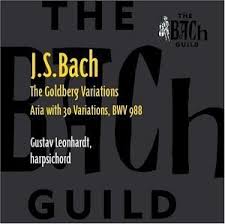
Ella Fitzgerald – The Cole Porter Songbook
Two birds with one stone here. Ella’s voice is sublime, and pairing her with Porter’s exquisitely crafted, delicious songs is perfection. And there’s the rub – I’ve had to defend Ella many times against the charge that, compared to Billie Holiday in particular, she’s just too perfect. Billie’s voice tells of betrayals and loss, a hard life, lived hard. And it’s wonderful, heartbreaking and vital. But the rich warmth of Ella’s voice is vital too. This is a 2 CD set, and is packed with fabulous songs. So in Love, Night and Day, Ev’rytime We Say Goodbye, I Get a Kick… And so many more. She lets the lyrics, those clever, subtle and often surprisingly rude, lyrics, work their own magic.
I’ve no idea when I first heard Ella, or Cole Porter, for that matter. I first heard some of Porter’s songs in the AIDS benefit project, Red Hot + Blue, which came out in 1990 – a very mixed bag, some of the artists very much of their time (The Thompson Twins, Jody Watley, Lisa Stansfield) but also Kirsty MacColl, Salif Keita, Neneh Cherry, k d lang… Other songs were already familiar, probably thanks to Sinatra. But if I had to pick one singer for Porter’s songs it would be Ella. She’s also done brilliant compilations of other great songwriters – Gershwin, Berlin, Kern. I don’t like all of her material, and whilst I admire her scat singing I don’t really enjoy it. Give her a tune though, and some genius lyrics, and she’s unbeatable.

Jimi Hendrix – Axis: Bold as Love
I have no idea why Jimi didn’t make it to Ten Albums, Take One. It’s almost as if he’s too obvious, has been too ubiquitous in my musical life, to be simply a name on a list. But there was a time before Jimi. I remember hearing on the news of his death in 1970 – I recall the crass, borderline racist dismissal of a ‘wild man of rock’ – and I know my brother had some of his albums, but it wasn’t until my musical life converged with my husband’s that I really started listening.
Axis: Bold as Love isn’t perfect. EXP is gimmicky and irritating, Wait till Tomorrow is enjoyable enough musically but the words are incredibly clunky and, yes, irritating. But when you’ve got Spanish Castle Magic, If Six was Nine, Castles Made of Sand, Bold as Love and Little Wing, you can forgive a couple of duff tracks.
There can’t be much Hendrix material I haven’t heard. Audience tapes of obscure gigs, demos and out takes and jams. Somewhere out there some collector is sitting on a recording I haven’t heard, another alternative version or another obscure gig, that might see the light one day. But meantime there’s a rich variety and abundance of material, given how short a time he had in the light. And I think it was with Axis: Bold as Love, that I properly fell for Jimi.
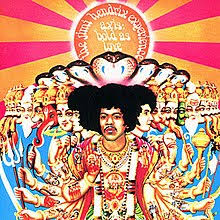
Jackson Five – Greatest Hits
Some might demur at the inclusion of Greatest Hits compilations in this account of the albums that influenced me. But (a) I make the rules, and (b) sometimes a well-chosen compilation is the way in to an artist’s work, a starting point. And when it comes to Motown, some of the actual albums contained a fair bit of ordinary, by the numbers material or ill-judged cover versions, whereas the Chartbusters collections and individual hits collections were all fab, no filler.
Motown was the soundtrack of my teens. I loved other stuff too, and Bowie was the most significant single artist, but those Motown songs, they still fill me with joy when I hear them now, just as they did back then. I loved the heartbreaky ones, obviously, the burning, yearning ones. But the Jackson Five produced some of the most purely joyous songs of their or any other time. ABC and I Want You Back are exhilarating, bewitching slices of pop/soul which sound as fresh now as they did back then. The interweaving of the voices – a Motown trademark of course, and with its roots in gospel – is uplifting and gives me goosebumps as only vocal harmonies can do.
I lent this album to a girl in our village, along with Michael Jackson’s debut solo album, Got to be There, and she moved away without giving them back. Not that I bear a grudge. OK, I did revile her name for many years but I’m over it now. Especially now we have another copy of the Greatest Hits.

Vaughan Williams – Fantasia on a Theme by Thomas Tallis/The Lark Ascending/Fantasia on Greensleeves
My mum loved VW. I can’t remember a time when I didn’t know these pieces in particular, and I learned to love the music for myself. The two Fantasias fed into my growing interest in early music, as well as leading me to other VW compositions.
Somehow (and this may be linked to my mum too) VW evokes for me as no other composer does the English landscapes that I love best, the coastlines of Cornwall and North Yorkshire, the mountains of the Lake District, the hills of Derbyshire.
After my mum died, the Tallis became in my mind so powerfully associated with her, and my grief at losing her, that to this day (and she died 25 years ago this year) I cannot hear it without weeping. And less than three months ago, we buried my kid brother, and it was The Lark Ascending that played as we followed his coffin out of the church and to the graveside. I doubt I will ever hear that piece again without weeping either. But I will keep on listening to these pieces, because however much they remind me of loss, they also lift my heart up, let it soar with the lark.

King Sunny Ade – Juju Music
My first Ten Albums selection included the wonderful Osibisa, who brought back to me the sounds of highlife music that I’d heard in Ghana as a child. I’ve been exploring African music ever since, from all over the continent, but with a particular love of West African music.
Nigerian King Sunny Ade started off in highlife (which is Ghanaian in origin but which spread to Ghana’s neighbours over the course of the 20th century, and particularly in the era of independence). The music evolved and ‘juju music‘ drew on a wide range of influences (including funk and reggae), whilst retaining its Yoruban flavour.
This 1982 album was his major label debut but Ade had been releasing records for almost two decades by then. It’s one of the first big successes of what is often called (somewhat problematically) ‘world music’, and led to so many other great African musicians (Youssou N’dour, Salif Keita, the Bhundhu Boys, Ali Farka Toure and Ade’s compatriot Fela Kute, the king of Afrobeat) getting airplay and record sales worldwide. And it is gloriously infectious and rhythmically compelling and joyous.
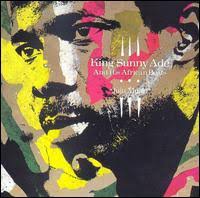
Bela Bartok – 2nd Violin Concerto
Mrs Bolland was the Deputy Head at Queen Elizabeth’s Girls’ Grammar School and taught general Music classes, not to O or A level students but as part of a wider education, throughout my schooldays there. At some point, I think in the lower 6th form, she played us some really quite challenging music from the twentieth century – Schoenberg’s Verklarte Nacht, something by Roberto Gerhard which I cannot recall… and this. From the moment I heard the opening pizzicato notes and the soaring violin, I was entranced.
This was written in the late ’30s, when Bartok was deeply troubled by what was happening in Europe (he left his native Hungary in 1940 and never made it back home again – he died in 1945). As with so much of the very best music, there is darkness and light here, sorrow and hope. Hearing this gave me confidence to explore other ‘difficult’ twentieth-century music, a quest that has continued ever since. I owe Mrs Bolland a debt of thanks.
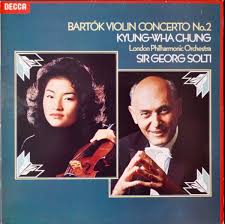
David Munrow – The Six Wives of Henry VIII
I loved the 1970 TV series, absolutely loved it. I went to some exhibition somewhere that had the costumes on display. I bought various tie-in publications to the series. I read everything I could about the Tudors (and have continued to do so over the years since).
And then there was the music. David Munrow and Christopher Hogwood founded the Early Music Consort in the late 1960s, and Munrow was in demand for soundtracking historical dramas with authentic music played on period instruments. He worked on The Six Wives, and its movie version, and on Elizabeth R. Listening to Vaughan Williams had prepared me for listening to Tudor music, and these pieces captivated me. At around the same time as I listened to this I acquired another album, presented as an Elizabethan Top Twenty. In fact, the ‘Elizabethan’ tag is a bit spurious as several pieces either pre- or post-date that era and although the performers were totally respectable there was the suggestion that the music was being just a little bit popped up to please audiences who wouldn’t normally go for this stuff . The Munrow set is more rigorously selected in terms of chronology, and because the performance of the music had to match the set, the costumes, all the period detail.
I recall being very shocked and upset to learn of Munrow’s suicide in 1976. But his legacy is remarkable – one can these days hear a fabulous range of early music on period or modern instruments in concert halls, on record and on the radio.

Miles Davis – Bitches Brew
We have Linda Buckley to thank for our introduction to Miles. To be honest, I didn’t really get Bitches Brew then, and if I had to recommend an entry point to Miles’ oeuvre, I don’t think it would be this (probs Kind of Blue, as predictable as that might seem). But I knew I was in the presence of musical greatness. We were into jazz rock at the time – Mahavishnu, Weather Report, Billy Cobham – and our way into jazz was through the jazz elements of that fusion. These days we listen to as much jazz as anything else. Miles played with anyone who was anyone, and his music changed dramatically over the years. So listening to all eras of Miles is a fantastic way to get into so many other artists, and to remain open to different strands of jazz, and to new bands and performers.
Radio 3 at the weekends gives us the chance to hear contemporary jazz on J to Z, which has introduced us to artists such as Dinosaur Junior, Tigran Hamasyan, Christian Scott Atunde Adjuah, Alina Bzhezhinska, Yazz Abmed, Kokoroko, Kamasi Washington… but also on Jazz Record Requests to hear the all-time greats. Now, I am not so fond of the trad stuff that a fair number of JRR aficionados seem to love. But there’s always something for us too – Coltrane, Ellington, Monk, Mingus, Haden, and, of course, Miles.
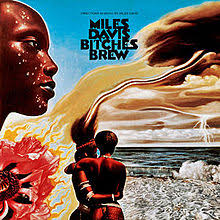
Simon and Garfunkel – Greatest Hits
I think this is the first album I bought. Or maybe the first one I bought from a record shop (my prized copy of Motown Chartbusters Vol. 3, on a remarkably solid slab of only slightly scratchy vinyl, was purchased at a knockdown price from a girl in my class). Bridge over Troubled Water was a huge chart hit, and my introduction to a world of wonderful songs.
The charts in 1970 were rich with hymn-like songs solemnly marking the passing of the 60s – not least the Beatles’ Let It Be – but Bridge Over Troubled Water was the blockbuster take: five minutes of booming, Phil Spector-inspired white gospel with a choirboy vocal and a simple, universal message beneath the sturm und drang. AP
https://www.theguardian.com/music/2020/apr/27/the-100-greatest-uk-no-1s
Just on this compilation, there’s For Emily, The Boxer, The Sound of Silence, I am a Rock, Scarborough Fair, America and of course BOTW.
Since then, I’ve listened to all the albums, and lots of much earlier S&G material, much of which is simply brilliant, and simply beautiful. And of course Paul Simon’s solo career (both alongside S&G and after the duo split), includes many, many gems: 1965’s A Church is Burning, Mother and Child Reunion, the Graceland album.
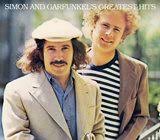
If I were to do this challenge again, next year, next month, tomorrow, I could find without great difficulty another ten albums that have influenced me significantly. Music has always been hugely important to me, and I’ve been listening for a very long time, to music from all eras, all genres, all continents. I have no truck with the ‘it’s all a bit shite nowadays’ school of thought – each era of music has had its share of tedious, derivative, witless and yet bizarrely successful material. Nor do I have any time for the wholesale dismissal of particular genres – I may not listen to a huge amount of country & western, for example, but I like quite a lot of it a lot (ditto rap). And in particular I’d hate to only listen to the music that is made here and in the USA, not when there are such extraordinary sounds emerging from so many other countries and cultures. The ten albums above have each led me in a particular musical direction, and for that – for these pieces of music and the artists who created them, for all the music I heard as a result and the joy it brought me – I am eternally grateful.
Postscript – Six Years of Singles
For a few years, it was the singles chart that dominated my musical life. Every Sunday we listened in, took notes, and voted, to come up with our own version of the chart. And every week we watched Top of the Pops (if the BBC changed which night that was on, I had to re-arrange my piano lessons to avoid a clash. No wonder my piano teacher/future mother in law did not try very hard to persuade me not to give up). That period, roughly between our return to the UK and my attempt to rapidly absorb and understand pop culture, and the point when music got a bit more ‘serious’ and album-focused was, say, 1968-1973. When I look back at the charts in those years there is an awful lot of absolute, utter, unadulterated tripe (some of which I remember with appalling clarity). But there are also some glorious slices of pop, and some formative moments.
1968 was the year I saw the Stones do Jumping Jack Flash on TOTP, the lighting making them look terribly sinister, and Arthur Brown doing Fire, wearing a hat that was actually on fire (no health & safety in them days). I think my mum was seriously shocked, and must have wondered whether her children should be exposed to this kind of thing. She didn’t ban it though, thankfully. I was shocked too, but in a good way. In total contrast, there was the sweet innocence of Mary Hopkin’s adaptation of an old Ukrainian folk tune, which both I and my mum could enjoy.
1969 introduced me to reggae via Desmond Dekker’s The Israelites. This was essential to my assimilation into school life. Music was very tribal and I never did get the hang of which group I might affiliate myself with most comfortably. I loved the music of both groups, was hopeless at conforming to dress codes or other social mores. But I did genuinely love ska, reggae, Motown and soul. Also this year, Jackson 5’s I Want you Back (see above), and Marvin Gaye’s version of Grapevine. And Tull’s Living in the Past, to nod to the other tribe.
1970 – Hendrix’s posthumous hit, Voodoo Child: Slight Return, probably the first Hendrix I heard (see above). And the first single I bought, Matthew’s Southern Comfort’s cover of Joni Mitchell’s Woodstock. That’s pretty cool as a first single, given how much I love Joni. Also one of the greatest singles ever, Freda Payne’s Band of Gold, which seemed to be always on the loudspeakers at the City Ground, and at Nottingham’s Goose Fair as we spun round on the waltzers.
Written by Motown brains trust Holland-Dozier-Holland, Band of Gold sees Payne sitting in a lonely bedroom, her wedding night gone disastrously unconsummated after some kind of freak-out by the groom. Although the exact details are tactfully veiled by Payne, it’s an unforgettably specific scenario, its horror hammered into your mind with that unyielding snare rhythm and told via a wondrous vocal line. BBT
https://www.theguardian.com/music/2020/apr/27/the-100-greatest-uk-no-1s
1971 and more reggae – Dave and Ansell Collins’ Double Barrel. My love of the A side, which sounded just as amazing when I reheard it a couple of years back, was only slightly dented by the B side being a bit of a rip-off.
If you wanted evidence of how far out, how unbound by the usual rules reggae was, you could find it at the top of the charts in early 1971: a piano line taken – sampled if you like – from Ramsey Lewis; a vocalist who largely grunted and bellowed incomprehensibly in the style of a Jamaican deejay: “I am the magnificent W-O-O-O!” It still sounds fantastic. AP
https://www.theguardian.com/music/2020/apr/27/the-100-greatest-uk-no-1s
Also, one of Diana Ross’s most gorgeous heartbreak songs, I’m Still Waiting. And while I never entirely loved T Rex, Jeepster was delicious.
In 1972, my French penfriend came to stay, and there was a bit of a cultural exchange as regards music. However, I think we won. Claude Francois and Michel Sardou couldn’t really compete with Alice (School’s Out) and Hawkwind (Silver Machine), T Rex (Children of the Revolution) and Deep Purple (Child in Time). There was also the uplifting loveliness of Johnny Nash’s I Can See Clearly Now.
1973 gave us Bowie’s Life on Mars – obviously not the start of my love affair with Bowie’s music, which really began when I heard Suffragette City on the juke box in the Cellar Bar, but a high, high point. Also this year, Lou Reed’s Perfect Day, a song that breaks my heart (when he sings, ‘You made me forget myself. I thought I was someone else, someone good’, oh lord). It’s a song about heroin, except that of course it isn’t, it’s a song about the fragility, the transience, the illusory nature of happiness. And then there’s the O’Jays’ Love Train, just to show that although my listening had shifted in a heavier direction, my love for soul had not (and never has since) faded.
After this period, we were less diligent in following the charts, and many of the albums we listened to in later years either didn’t yield singles, or those singles didn’t trouble the charts at all. And gradually we lost touch. The singles charts don’t mean today what they did back in the early ’70s, when one really could not face school on a Monday or the morning after TOTP unless one had listened/watched, and had an (acceptable) opinion on it all. But the art of the single – of packing a tune (with middle eight and memorable chorus), with lyrics that one could sing along to – into 2-3 minutes, with a B side that might even turn out to eclipse the actual hit – is, when it works, an extraordinary form of magic.
Bitter Victory
Posted by cathannabel in Second World War on May 7, 2020
Somehow the impending anniversary of VE Day had not impinged on my consciousness. I didn’t get the memo about the Mayday bank holiday being shifted to Friday so we could commemorate the end of WWII in Europe.
And I’m deeply uneasy about it. We’re in the midst of a crisis which, as we are reminded daily, is the toughest thing we’ve had to face since the last war. And it’s by no means over. We are assured that the infection has ‘passed the peak’ but people are still dying and the dying will continue for some time yet. Street parties – even physically distanced ones – surely aren’t quite capturing the mood. And the more cynical amongst us may suspect that this anniversary is giving government an opportunity for distraction – remind us of our finest hour, whilst offering us only spin and tweaked stats and pieties in place of decisive, timely and compassionate action.
And there’s more to my unease. Are we marking the defeat of a genocidal fascist dictatorship which had brought about the deaths of millions, not just soldiers, or civilian casualties of bombing, but people targeted for death because they were Jewish, Communist, Roma, homosexual, disabled? Are we marking the fact that in the wake of this horror, Europe forged a peace and a unity that has held ever since?
Or are we celebrating because ‘we’ defeated ‘them’? Because Churchill was the Boris of his day, facing down an enemy with British pluck and bulldog spirit? Just to illustrate my concerns:

What did the end of that war really mean for us here in Britain, and for our neighbours in Europe? Primarily, I would guess, for the British, it was relief. Relief that they no longer had to listen for the sirens, or listen for when the V1 engines cut out. Relief that nights in shelters or underground stations, waiting for the All Clear, were at an end. The prospect of life returning to some semblance of normality, or to what we would now call a ‘new normal’. The prospect of the return of the people they loved who had been serving in Europe, and the relief those people were no longer in daily peril.
But even then, it was tempered with the reality of loss. The gaps on the streets where houses used to stand, where families had lived. The people who would never come home, or who came home unutterably changed and damaged.
And the new normal had to accommodate – not right away, but soon – the full knowledge of what had happened ‘over there’. For those who’d arrived in the UK as refugees, there was the terrible wait for knowledge – and then the terrible weight of knowledge. Some returned to their families, if not to home, unutterably changed and damaged, and those to whom they returned had to wrestle not only with grief but the guilt that they had been spared, and the impossibility of truly understanding.
Across Europe, if not here, people had been starving – not just in the camps but in bombed-out cities, occupied territories. People now were sick, not just in the camps but across the continent, because of malnutrition and the breakdown of infrastructure in cities, towns and villages that had become rubble.
The thing is, VE Day didn’t mean it was all over (and not just because a brutal war continued in the Pacific, for another three months). For many it was never over. They may not have talked about it, often or at all, but it stayed with them. The survivors of the camps, the soldiers who liberated the camps, those who survived but saw more cruelty and destruction than their souls could bear. It may seem as if the war is being invoked all the time, especially at present, but rarely by those who really remember it, who were actually there.
I can’t mark VE Day with little flags and Vera Lynn and Keep Calm and Carry On. I mark this 75th anniversary by remembering the cost, remembering the loss and the pain and the destruction. And by remembering how Europe rebuilt and repaired, not only buildings and roads and ports, but alliances and communities and trust. I will think of victory in Europe, and the victory of Europe as an ideal of peaceful cooperation. Any VE day celebration that does not celebrate Europe is a sham, a fantasy of Little England, standing alone (apart from the Polish airmen, and the troops from across the Empire, and the Yanks, and the Red Army and the Free French and…), a myth that we use to bolster our sense of exceptionalism and our perverse decision to actually stand alone now.
Of course people celebrated 75 years ago. In that giddy moment of relief and release, they sang and danced and drank and kissed unsuitable strangers. It wasn’t all partying. There was joy, and pride in the courage and fortitude of soldiers and resistance fighters who had dared so much and won. There was hope that now things would be better. But as Frank Capra says in It’s a Wonderful Life, made in 1946, on VE Day they ‘wept, and prayed’.
75 years on, we can recapture neither the giddy relief nor the raw sorrow. We have a different perspective, inevitably. We know so much that they didn’t, about what happened during the war, and what came after. Our commemoration must be honest and clear-sighted, not sentimental.
The hope that VE Day brought was not just the hope of being reunited with loved ones. It was the hope of lasting peace, the hope that with peace would come the chance to build a better, fairer society. That hope led to the European Community, to legislation to protect individuals and communities against prejudice and discrimination, to the UN and its role in establishing and protecting human rights worldwide. As imperfect as those protections are, they emerged directly from the victory we are commemorating tomorrow.
Here, it led to the creation of the welfare state and the NHS. If we really understand what VE Day meant, perhaps this anniversary will help us to see how a better, fairer society could emerge once we’re all able to emerge from our quarantine. Perhaps.
With respect and gratitude to all of those who fought and died to defeat Nazism, with deep sorrow to all of those engulfed by the barbarity, those who were murdered, those who survived, those who lost so much.
Let us commemorate, by all means. But most of all, let us learn. Because if we do not learn from this bitter victory, night might fall again.
